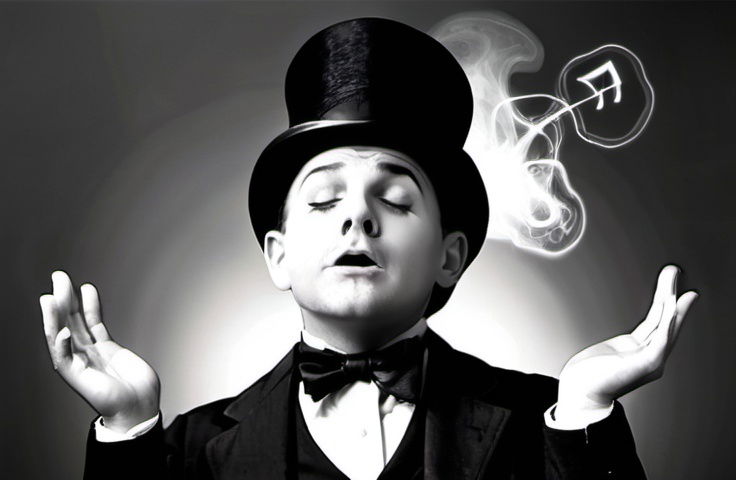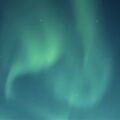A first-of-its-kind competition sponsored by the MAGIC lab has challenged magicians to create purely auditory “illusions for the blind” that audience members who are unsighted or visually impaired can enjoy. Dubbed the Auditory Magic Challenge, the competition will climax with the winner being announced on November 12th in Las Vegas at the annual Science of Magic Association conference.
“In a world dominated by visual stimuli, where magic often captivates through sleight of hand and optical illusions, a new challenge emerges – one that dares to explore the magic of sound alone,” the competition’s website explains. “Can magic truly be witnessed through the ears alone? This challenge aims to find out.”
Psychology Professor Notices There Are No Good Illusions for the Blind
In the press release announcing the Auditory Magic Challenge, the organizers point out that the vast majority of magic tricks rely on sleight of hand or misdirection “that deceives the eye.” Unfortunately, this dynamic prevents the blind or visually impaired from experiencing the wonder and awe of a well-crafted illusion.
This disparity caught the attention of Dr. Gustav Kuhn, an Associate Professor of Psychology at the University of Plymouth and a Member of the Magic Circle and the Science of Magic Association, who was concerned that there were essentially no illusions for the blind.
“Individuals who live with blindness and visual impairments often face significant barriers to accessing and participating in artistic expression like magic,” said Kuhn.
Hoping to change that equation, Professor Kuhn says he decided to reach out to the magic community, of which he is a member, to see if the leading minds in magic and illusion could create awe-inspiring illusions for the blind that don’t rely on anything other than auditory perception. The result is the first-of-its-kind contest challenging top performers and amateur magicians to create magic tricks of pure sound that this underserved community could enjoy.
Rules for Constructing Purely Auditory Illusions
On their website, the MAGIC lab team has set forth a few basic ground rules for magicians and illusionists interested in entering the contest and creating illusions for the blind.
First, all tricks must not include any of the verbal cues or instructions typically found in mentalism tricks. The group cites a trick used by mentalists called “Grey Elephants in Denmark” as an example.
Second, all magicians are asked to abstain from integrating sensory elements beyond auditory perception. This includes somatosensory elements like sensations of touch, pressure, pain, or the necessary movement of body parts.
Third, all contest entrants must exclude stimuli “that appeal to the olfactory and gustatory senses.” This means no tricks based on smell or taste.
“The premise is simple yet intriguing,” the contest’s organizers explain. “Create a magic trick that transcends the traditional use of sight, touch, smell, taste or proprioception in magic.”
The MAGIC lab’s contest rules offer multiple options for submitting a trick for review. Contest entrants can submit a detailed description of their auditory trick, “which allows for the meticulous articulation of concepts, techniques, and the inner workings of each trick.” Alternatively, entrants can submit their tricks in video format, “offering an immersive objective experience.”
However, the contest organizers note that the best option may be to submit actual sound files of the illusion combined with recordings of actual live performances, “allowing the magic to resonate purely through audio.”
“This format places emphasis on the auditory experience to allow illusions to come to life through the power of your imagination,” they explain.
Evoking Wonder and Amazement Purely Through Sound
The contest offers a cash prize of $200 to the winner, which will be awarded at the November conference. However, the organizers say the true benefit of their contest lies in the potentially transformative impact that creating illusions for the blind can have on society as a whole.
“We believe the significance of this challenge extends far beyond entertainment,” said Kuhn. “Recognising the importance of creating magic for these individuals is a profound act of inclusivity and compassion that can have a transformative impact on our society.”
“By focusing on auditory perception alone, this challenge provides a unique opportunity for this audience to experience magic performances in a meaningful way,” the contest organizers explain. “As they become the primary spectators, this contest aims to serve as a platform to push the boundaries of magic, reshape its taxonomy, and capitalize on inclusion and empowerment.”
“This initiative truly highlights the transformative power of magic to unite and delight everyone,” they add.
The deadline for magicians to submit illusions for the blind is October 1st. The winner will be announced on November 12th in Las Vegas at the annual Science of Magic Association conference. Submissions can be made via this link.
Christopher Plain is a Science Fiction and Fantasy novelist and Head Science Writer at The Debrief. Follow and connect with him on X, learn about his books at plainfiction.com, or email him directly at christopher@thedebrief.org.

